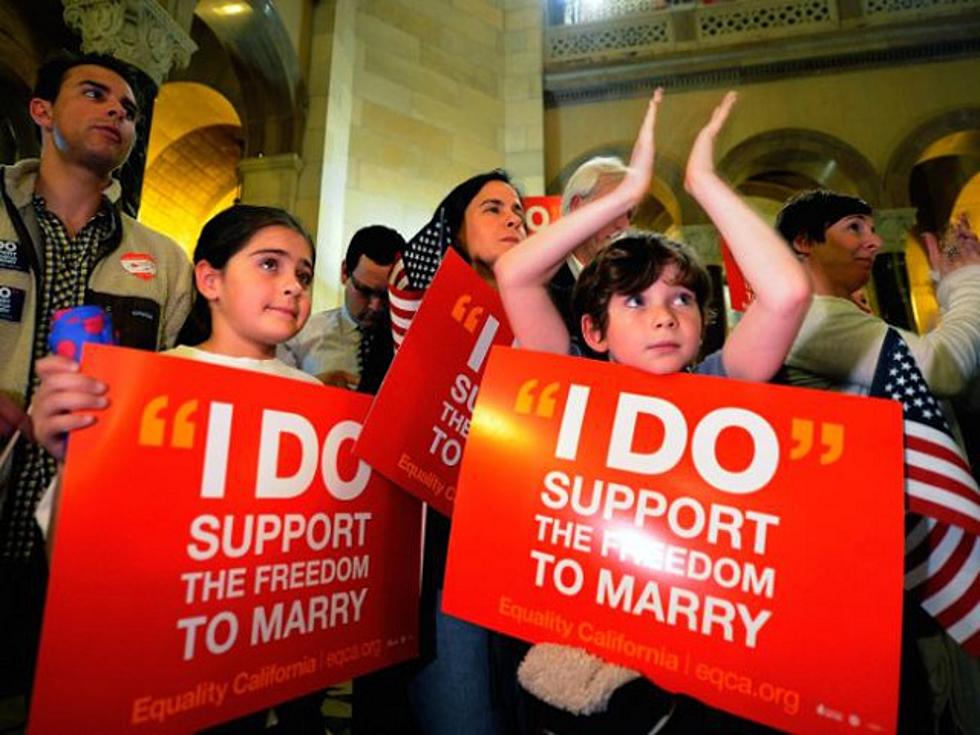![Twins! Two Same Sex Marriage Cases In The Supreme Court [POLL]](http://townsquare.media/site/180/files/2013/03/164685747-630x444.jpg?w=980&q=75)
Twins! Two Same Sex Marriage Cases In The Supreme Court [POLL]
The latest sensation sweeping the nation is the debate over same sex marriage. Two same sex marriage cases are being heard by the Supreme Court.
Yesterday, the court heard a challenge to California's Proposition 8. That case focuses on the constitutionality of 'Prop 8', voted and approved by California voters in 2009. This proposition eliminated the rights of same-sex couples to marry.
The proposition was overturned by the Ninth Circuit Court of Appeals, making Prop 8 unconstitutional. However, the proponents of the proposition are now asking the Supreme Court if restricting marriage to being between a man and a woman actually violated the 14th Amendment for legal equality.
There are five possible outcomes in this case:
- Same-sex marriage could be constitutionally protected nationwide. That would mean that every state in the nation would have to recognize same-sex marriage.
- Same-sex marriage could not be constitutionally protected, meaning same-sex marriage is not protected by the Constitution, meaning that states that do have same-sex marriage could be overridden by the federal government.
- A hybrid option is making no difference between civil unions and marriage. For same-sex couples, that's good news for those who live in states with civil unions. Bad news for states debating same-sex marriages and civil unions because it gives them one less option to appease everyone.
- Same-sex marriage could just be protected in California, upholding the appeal court's decision. That would make the issue a non-national matter, but also resolve California's battle one-and-for-all. It would also set some precedence in future cases without forcing every state to accept a same-sex policy one way or another.
- The final option is for the Supreme Court to dismiss the case. If the Court feels the Prop 8 supporters have no reason to be in court, they will not offer a ruling and the appeal court's decision will be the one that stands.
Today, the court hears a challenge to the federal government's Defense of Marriage Act (DOMA). This case involves a New York woman who is challenging DOMA on the grounds of equality. She argues that she unfairly had to pay $363,000 in estate taxes when her partner died. She says if she had been married to a man, she would not have had to pay the estate tax.
This case focuses primarily on the constitutionality of the federal law. But it also butts the heads of state and federal law in a challenge of which is more correct.
Which side are you on?
More From News Radio 710 KEEL









